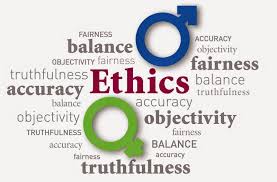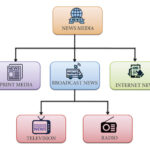
Introduction
Journalism plays a fundamental role in society by providing accurate, fair, and reliable information. Ethical journalism ensures public trust, credibility, and accountability in the media industry. In an era of misinformation and digital media, adhering to journalism ethics and standards is more crucial than ever. This blog explores the key principles, challenges, and best practices for ethical journalism.
Importance of Journalism Ethics & Standards
Builds Public Trust: Ethical reporting enhances credibility and reader confidence.
Prevents Misinformation: Ensures accurate and verified information is disseminated.
Supports Democracy: Encourages transparency and holds power accountable.
Promotes Fairness: Ensures balanced and unbiased reporting.
Protects Journalistic Integrity: Upholds professionalism and responsibility in the field.
Key Principles of Journalism Ethics
1. Accuracy and Truthfulness
Verify facts from multiple credible sources.
Avoid spreading rumors or unverified claims.
Present information in a clear and unaltered manner.
2. Impartiality and Fairness
Provide balanced reporting without personal or organizational bias.
Cover multiple perspectives on an issue.
Avoid conflicts of interest that could affect objectivity.
3. Accountability and Transparency
Admit and correct errors promptly.
Disclose sources when necessary while maintaining confidentiality.
Be open about conflicts of interest or affiliations.
4. Independence from External Influence
Resist pressure from political, corporate, or other external entities.
Avoid accepting gifts or bribes that could compromise reporting.
Ensure editorial decisions are made based on journalistic values, not commercial interests.
5. Respect for Privacy and Sensitivity
Protect individuals’ privacy rights unless the public interest justifies disclosure.
Approach sensitive topics with care, especially concerning victims.
Avoid unnecessary intrusion into personal lives.
6. Responsible Use of Social Media
Verify the authenticity of digital sources and user-generated content.
Avoid spreading misinformation through social media platforms.
Clearly distinguish between opinion, analysis, and factual reporting.
Challenges in Maintaining Journalism Ethics
Fake News and Disinformation: The rise of digital platforms has increased the spread of false information.
Pressure from Governments and Corporations: External influences can challenge journalistic independence.
Financial Constraints: Profit-driven media may prioritize sensational content over ethical reporting.
Social Media & Virality: Speed often takes precedence over accuracy in the race to break news.
Legal & Security Risks: Investigative journalists may face legal threats or physical danger.
Best Practices for Ethical Journalism
Fact-Check Before Publishing: Use fact-checking tools and credible sources.
Provide Context: Present a complete picture rather than misleading snippets.
Distinguish Between News and Opinion: Clearly label editorial content.
Use Ethical AI & Data Practices: Avoid manipulation or biased AI-driven journalism.
Engage with Readers Responsibly: Foster trust through transparency and responsiveness.
Future of Journalism Ethics
AI and Automation in Journalism: Ethical considerations for AI-generated news.
Deepfake Detection: Combating misinformation through technology.
Blockchain for News Verification: Ensuring transparency in news reporting.
Stronger Legal Frameworks: Enforcing global standards for ethical journalism.
Conclusion
Journalism ethics and standards serve as the backbone of credible and responsible reporting. By upholding accuracy, fairness, and accountability, journalists can foster public trust and contribute to an informed society. As the media landscape evolves, ethical journalism remains essential in combating misinformation and maintaining integrity.











